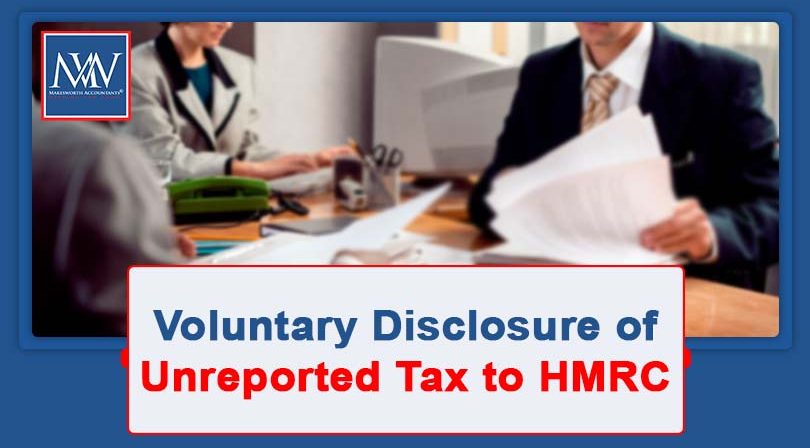
Voluntary Disclosure of Unreported Tax to HMRC
There are various reasons why a person may not have told HMRC about the tax they owe, ranging from a simple oversight to deliberate tax evasion. Regardless of the reason, if you have failed to declare income and gains on which tax is due, it is always better to take action to correct the situation than to wait to be ‘found out’ by HMRC.
There are various ways in which a disclosure can be made, and the option that is right for you will depend on your particular circumstances.
The digital disclosure service
Individuals and companies can use the digital disclosure service to tell HMRC about errors that relate to income tax, capital gains tax, inheritance tax, corporation tax, National Insurance, or the Annual Tax on Enveloped Dwellings. It cannot be used to tell HMRC about errors relating to VAT. The service can be used regardless of whether the error arose despite taking reasonable care, as a result of carelessness, or because of deliberate actions.
There are various steps to follow.
The first step is to notify HMRC that you wish to disclose the digital disclosure service (see www.gov.uk/guidance/tell-hmrc-about-underpaid-tax-from-previous-years). At this stage, it is not necessary to provide details of the income or gain. After making your notification you will receive a unique disclosure reference number (DRN) and a payment reference number.
The next stage is to make the disclosure. This can be done once you have the DRN and must be done within 90 days of the date on which HMRC acknowledged your notification.
You will also need to calculate what you owe, and it is advisable to take professional advice. You will also need to work out the interest and penalties that are due. HMRC has an online calculator which can be used for this purpose. Interest is charged from the date that the tax was due to the date that it was paid.
The number of years covered by the disclosure would depend on the reason for the error – if you took reasonable care, the maximum period HMRC can go back is four years, if you were careless, it is six years, but if you deliberately misled HMRC, they can go back 20 years.
As part of your disclosure, you will need to make an offer to HMRC.
Payment should be made when you submit your disclosure using the payment reference issued by HMRC.
If HMRC are satisfied that you have made a full disclosure, they will accept it. They may undertake further checks before accepting the disclosure. Where a disclosure is accepted, HMRC will send a letter of acceptance, which together with your offer letter forms a binding contract. If the disclosure is found to be incorrect or incomplete, it will not be accepted, Disclosures are unlikely to be accepted if they are made after HMRC has opened an inquiry or a compliance check. HMRC will contact you if they cannot accept the disclosure. Where this is the case, they may seek higher penalties or, in cases of fraud, consider a criminal investigation.
The contractual disclosure facility
The contractual disclosure facility (CDF) should be used where a disclosure is being made because you deliberately failed to tell HMRC about the tax that you owe. This facility should only be used to admit tax fraud – it should not be used if you made an error despite taking reasonable care or you were careless.
If HMRC suspects you of tax fraud, they may offer you a contract through the CDF.
Specific campaigns
From time to time, HMRC runs specific campaigns related to the non-disclosure of a particular type of income. Details of specific campaigns can be found on the Gov.uk website.
For example, HMRC has a specific form for telling them about undeclared sales arising from misuse of your till system (see www.gov.uk/guidance/make-a-disclosure-about-misusing-your-till-system).
Partner note: www.gov.uk/government/publications/hmrc-your-guide-to-making-a-disclosure/your-guide-to-making-a-disclosure.
\
For more information, Book a Free Consultation`
Need Accountancy Support?
For information on bespoke training, or if you have any other questions for Makesworth Accountant, please fill in your details below
















 151
151